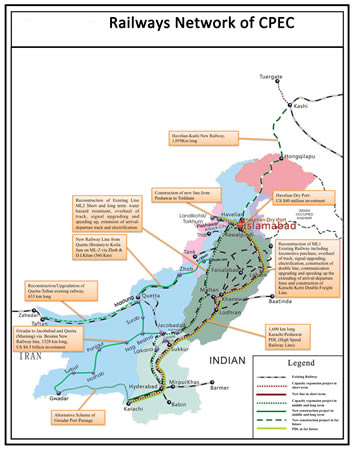The New Silk Road and Pakistan's Role
in World-wide Connectivity
Saturday, November 4th
1:00 - 4:00 PM
TRYPT WYDHAM HOTEL Times Square South
(345 W 35th St, New York, NY 10001)
2nd Floor -- Meeting Room
Registration starts at 12:30 pm, $20 Suggested Donation
Pre-registration is recommended
For more information or to pre-register, please call (201)562-9890
Speakers Include:
Special Guest from Pakistan
Raja Razzaq, Pakistani American Think Tank (USA)
Dr. Uzma Gul, activist and educator
Diane Sare, Schiller Institute, Choral Director of the NYC Chorus
View full size |
President Donald Trump's trip to Asia, beginning November 3, 2017, can become a turning point in history. He is expected to meet privately with the Presidents of China, of Japan, of South Korea, of The Philippines and possibly of the Russian Federation.
Helga Zepp-LaRouche, chairwoman of The Schiller Institute said, in a recent interview: "The spirit of the New Silk Road is a new thinking that mankind can work together for the common good. And that it doesn't have to be the geopolitical interests of one group against the geopolitical interests of another group, but that "win-win" cooperation, where each country benefits, is actually the spirit of this new era. So, this is going on, and I think if you take that together with the developments in Africa, in Ibero-America, this spirit is marching forward. I am absolutely confident that it will characterize a completely new era of civilization."
One of the key large projects of China's Belt and Road Initiative (BRI) is the "China Pakistan Economic Corridor" (CPEC). This development corridor will establish the most modern ports at Gwadar and Karachi on the Arabian Sea, and connect northward via railroads, highways and fiber-optic cable to central Asia and China.
The US State Department, responding to a question posed by The News, of Pakistan, said, this week, "We believe that the China-Pakistan Economic Corridor -- and particularly its focus on transportation infrastructure and energy development -- has the potential to contribute to stability and prosperity in Pakistan and the region."
The Schiller Institute and the Pakistani American Think Tank (USA) are honored to sponsor presentations on Saturday by Special Guest Speakers from Pakistan and by Diane Sare of The Schiller Institute. Our Panel will include Raja Razzaq of the Pakistani American Think Tank (USA), and activist and educator, Dr. Uzma Gul.

